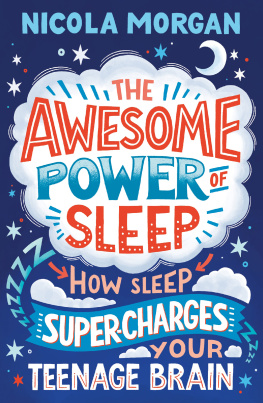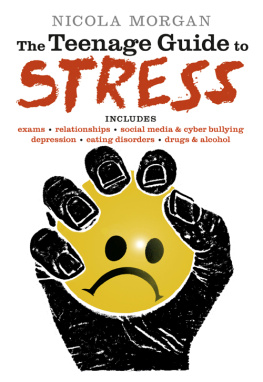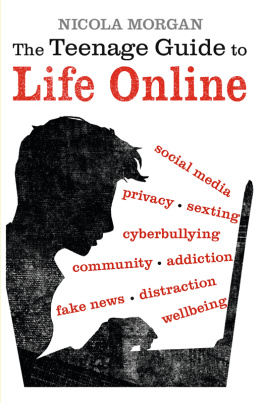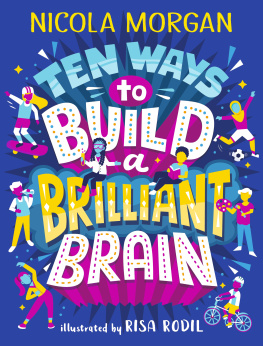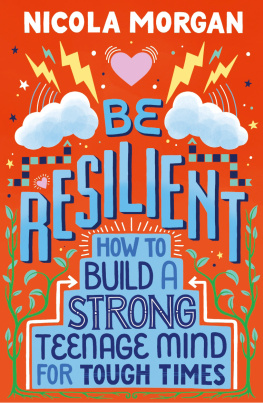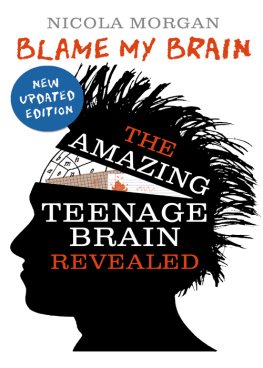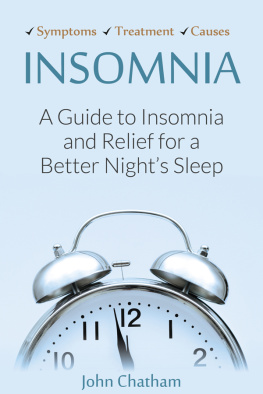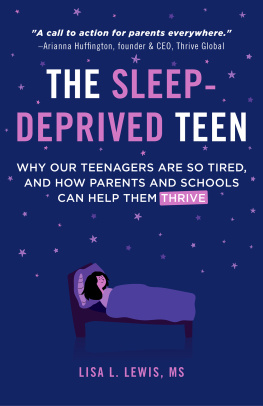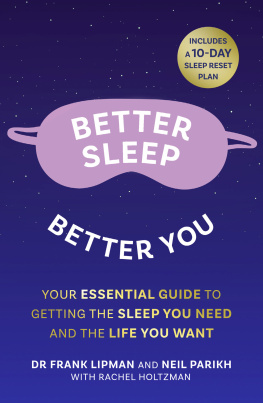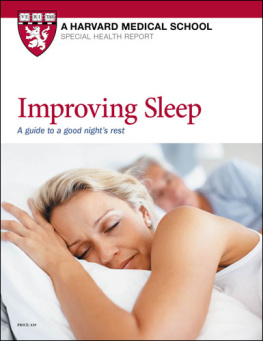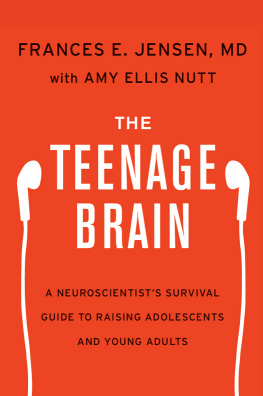

To Arthur, because in 12 years youll be a teenager, which should give you time to perfect your sleeping skills. Its been wonderful having you to live with us during lockdown but 4.30 a.m. is not what we call morning.
INTRODUCTION
Do you sleep well? Fall asleep quickly when you turn your light off? Wake easily when your alarm rings? Spend the day feeling mostly wide awake? If so, lucky you! Very many people adults and teenagers say they dont get enough sleep and feel significantly tired during the day. It affects their well-being and performance in every area of life.
Everyone experiences occasional bad nights or phases when sleep seems difficult, but certain groups of people have more problems than others: teenagers and people under stress, for example. So, if youre a teenager and under stress, you have a double chance of sleep problems. And thats not only distressing but also undermines your well-being and how you feel and function during the day.
More and more people are starting to take note of the science that tells us how important adequate sleep is to our mental and physical health. The trouble is that when we cant sleep, worrying about the importance of sleep is likely to keep us awake! We need to find a balance: we must believe in the power of sleep without panicking about not getting enough. This book aims to help you.
The Awesome Power of Sleep unpicks the up-to-date science. You will discover how sleep affects physical and mental health, including emotion, mood, memory, appetite and weight. Youll learn the effects of daytime napping, late-night revision, travelling across time zones, anxiety, exercise, caffeine, light, screens (including ebook readers), sleeping pills, melatonin, reading before bed, temperature, routines, weekend lie-ins and sleeping too much. Be prepared to be fascinated by the research into how sleep helps us learn and remember, including ways we may be able to time learning and sleep for the best effects.
Then theres the fascinating world of dreaming! Whats it for? Do dreams mean anything? Have you ever been in a dream and known youre dreaming? And have you even been able to control your dreams? Join the club of lucid dreamers!
All the science would be pointless without strategies for better sleep. This book gives you all the strategies and solutions you need, based on science. Youll be able to analyse your own sleep and discover what you could be doing better. Youll find tips you can use throughout your life. Some will work better for you than others: try them all and do what works.
Unfortunately, some people think its cool to manage on little sleep. This can include some students during the time leading up to exams. I confess that I used to boast about how little sleep I was having and thought this meant I was working hard. I made myself ill, which wasnt cool and didnt help my results at all.
I wasnt always a healthy sleeper and I didnt always prioritise sleep as I do now. But Ive learnt the real benefits that come when I get the best sleep I can. I travel a lot, including overseas trips with major time differences, jet lag and sleeping in hotels, but I have to make sure my brain is in top condition. Add to that the fact that Im naturally a stressy person and you have someone at risk of poor sleep. But simple strategies and routines make sure I almost always get the best sleep possible in those difficult conditions. And when my tricks dont work, I dont panic, because I know that a bad night here or there isnt a problem.
AN EXTRA TEENAGE PROBLEM
In some ways sleep is the same for anyone but there are factors that are especially relevant to adolescents anyone from the age of around eleven or twleve until well into their twenties. You.
First, the most common reasons for not getting to sleep easily are anxiety or a brain that wont go quiet. Although adults have the same trouble, teenagers have less practice in an important skill: diverting thoughts away from worry. The part of the brain we need to control and regulate our emotions and reactions is the prefrontal cortex. Its the last part of the brain to develop and doesnt finish doing so until well into your twenties. So, you are at a disadvantage compared to adults when it comes to controlling dark, scary, negative thoughts. (Adults often arent great at it either.)
Add the fact that teenage brains need more sleep than adults, as youll discover on . And that you have to get up early for school and do schoolwork in the evenings.
Finally, add the reality that teenagers are highly social and often need to be connected to each other via screens screens which strongly interfere with sleep.
That all adds up to a massive problem: lots of sleep-deprived young people who feel terrible during the day and whose well-being and performance are likely to be damaged.
Fortunately, the solutions are all in this book. Even with teenage pressures and brain changes that affect sleep patterns, you can become super-charged by sleep. So much of the science is new and your parents and teachers may not know it. Share it with them! Often when I visit schools, I find myself giving detailed sleep counselling to teachers. Im shocked at the bad habits many adults have, while telling teenagers how to behave!
THE TRUTH IS CLEAR
We all need enough sleep to have the best health. We need to believe in its importance and then learn how to get it. This book will help you have a healthy, unproblematic relationship with sleep. Then the hours when your head is on your pillow can do their job of making your brain and body the best they can be.
CHAPTER ONE:
YOU AND SLEEP
This chapter is all about you! Youll be able to assess your own sleep, see whether you have any specific sleep problems and find out what you already know, before we move to the awesome science of sleep. Everyone is different, with a whole range of different behaviours, habits and problems. When were trying to get to sleep, we are very alone in our own heads and we often dont know how that fits with other peoples experiences. This section helps you put yourself in context. Its the beginning of your journey towards great sleep.
The Awesome Power of Sleep has activities, quizzes and things to think about, so it would be great if you had a notebook or just used a computer or app for recording your answers, thoughts and ideas.
QUIZ: TESTING YOUR KNOWLEDGE NOW
This is to test what you know now, so that you can see what you learn through the book. Dont worry if you dont know any of the answers! One of the learning techniques we know works is called pre-testing, where you test yourself before learning. The main benefit of this is that, as you start to read the material, it will feel slightly familiar and your brain will be triggered to focus on the information as being important.
Test the adults you know, too!
. What does REM in REM sleep stand for?
. Does deep non-dreaming sleep typically happen mostly in the first half or second half of the night?
. What is a hypnagogic myoclonic twitch?
. At night, should your bedroom be a bit colder or a bit warmer than during the day?
. Are there some animals that dont sleep?
. Do other animals (i.e. non-humans) dream?
. Is it true that some people are biologically more wakeful in the morning and others at night, or is this difference just about habit?
Next page
